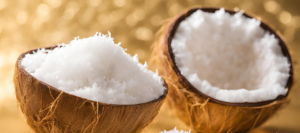The Significance of Indian Coconuts in Export: A Golden Harvest

India is renowned globally for its rich agricultural heritage, and one of its prized natural gifts is the coconut. The Indian coconut industry has been flourishing for decades, thanks to the country’s favorable climate and fertile soil. Today, Indian coconuts and their byproducts are in high demand worldwide. With its vast coastline and abundant cultivable land, India has established itself as a prominent exporter of mature coconuts and coconut byproducts. In this article, we will explore the significance of Indian coconuts in export and shed light on the reasons behind their golden harvest.
The Versatility of Coconuts
Coconuts are often referred to as the “Tree of Life” due to their abundance and the wide range of products that can be derived from them. From food and beverages to cosmetics and industrial applications, coconuts offer unparalleled versatility.
Here are some notable coconut byproducts:
- Coconut milk and cream, used in cooking traditional Indian dishes and as a dairy alternative.
- Virgin coconut oil, known for its health benefits and widely used in skincare and haircare products.
- Coconut flour, a gluten-free alternative gaining popularity in the baking industry.
- Coconut water, a refreshing and hydrating beverage packed with essential electrolytes.
- Coconut shell charcoal, used for activated carbon production and as a fuel source.
- Coconut fiber, known as coir, used for making ropes, mats, and various home décor items.

The diverse range of coconut byproducts ensures a steady demand, making it a lucrative industry for both global consumers and Indian exporters.
Why Indian Coconuts?
1. Quality and Authenticity:
Indian coconuts are known for their exceptional quality and purity. The ideal tropical climate and fertile soil create the perfect conditions for coconut cultivation. Moreover, Indian farmers follow traditional and sustainable farming practices, ensuring the authenticity and natural goodness of the coconuts.
2. Organic Cultivation:
Many Indian coconut farms employ organic cultivation methods, avoiding the use of artificial fertilizers and pesticides. This commitment to sustainable agriculture appeals to health-conscious consumers worldwide who seek organic and eco-friendly products.
3. Competitive Pricing:
India’s coconut industry benefits from cost-effective cultivation and processing methods. As a result, Indian exporters can offer competitive pricing, making their products attractive to international buyers.
Exporting Indian Coconuts: A Lucrative Business Opportunity

With its high-quality coconuts and diverse range of byproducts, India has become a leading player in the global coconut export market. From mature coconuts to value-added products, there is a significant demand in both developed and emerging markets.
Why should international buyers consider Indian coconuts for their requirements?
- Reliable Supply: India’s extensive coastline and large coconut farming community ensure a consistent and reliable supply of coconuts throughout the year.
- Stringent Quality Control: Indian coconut exporters adhere to strict quality control measures to ensure that each batch meets international standards.
- Customization and Variety: Indian exporters offer a wide variety of coconut byproducts and can cater to specific buyer requirements. Whether it’s customized packaging, organic certifications, or private labeling, Indian coconut exporters are known for their flexibility and adaptability.
- Supporting Local Communities: By choosing Indian coconuts, buyers contribute to the sustainable development of rural farming communities, empowering local farmers and supporting their livelihoods.
Sustainable Farming Practices: A Driving Force

Indian coconut farmers understand the importance of sustainability and ecological balance. Many coconut farms have embraced organic farming practices, minimizing the use of chemical inputs, conserving water, and preserving biodiversity. These sustainable practices not only benefit the environment but also enhance the quality of the coconuts produced.
Conclusion
India’s golden harvest of coconuts and coconut byproducts has made it a significant player in the global export market. The versatility, authenticity, and competitive pricing of Indian coconuts have captivated buyers worldwide. As the demand for natural and sustainable products continues to rise, Indian coconuts are poised for even greater success in the years to come. So, if you are seeking high-quality coconuts and their valuable derivatives, look no further than India – the land of golden coconuts.
Explore the range of Indian coconut products here.
Sources:
- https://www.agrifarming.in/coconut-cultivation-information
- https://yourstory.com/2019/10/coconut-business-startups-niche-ideas
- https://coconutboard.in/
- https://www.tamilnadutourism.org/coconut



